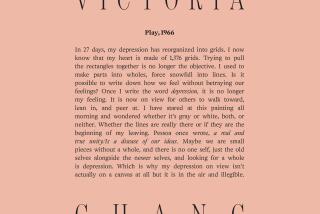Drowning the Book by Howard Nemerov
- Share via
*”Life is hard, And then you die.”
Now listen, Howie, if anyone ever read
Those little verses that you sometimes do,
It wouldn’t have been because they wanted to hear
About age, old age, and illness, and the grave
Or all that there they know enough about
Without your help, without your dubious help.
There’s but three steps from Milton back to malt,
And but three grains of salt with a peck of dirt
Between the elegant this and the silly that;
And the purpose of poesy, as all of us know
Without the sermon, is, by telling the truth
To disintoxicate and disenchant
By lying like Homer taught us first to do.
You’ll recollect what in this vale of tears
Is consequent, that there are girls in it
Lighting desires that a bachelor sage
Said God alone could satisfy (He sometimes does),
Moving the way they move in dithery
Delight, with the delicate bend and thrust
Of this and that about their splendid persons
Unil they swell and cry aloud for corks
And fade into the light of common day
To start our burning busyness again--
And why would they give a fart in a high wind
When every wheel of this unwearied mill
That turned ten thousand verses . . . this living hand?
You made your bargain before you made your bed:
Lie in it still, as if you must you may.
From “War Stories: Poems About Long Ago and Now” by Howard Nemerov (University of Chicago Press: $10.95; 60 pp.). Nemerov has published 26 books. His volume, “The Collected Poems of Howard Nemerov,” won the National Book Award and the Pulitzer Prize in 1978. He has also been the recipient of the Bollingen Prize for Poetry and a Guggenheim and was the first winner of the Aiken Taylor Award for Modern American Poetry. Nemerov has been the Edward Mallinckrodt Distinguished University Professor of English at Washington University in St. Louis since 1976.
*”The sentiment of the epigraph would have been unremarkable enough save that when first seen it covered both points on a T-Shirt. The known instructors, with a long life’s gratitude, are: William Shakespeare, T. H. White, John Milton, A. E Houseman, John Keats, W. H. Auden, Aristotle for Homer, Henry Thoreau, Alexander Pope, William Wordsworth, William Yeats, and, of course, John Keats, again.”
More to Read
Sign up for our Book Club newsletter
Get the latest news, events and more from the Los Angeles Times Book Club, and help us get L.A. reading and talking.
You may occasionally receive promotional content from the Los Angeles Times.








